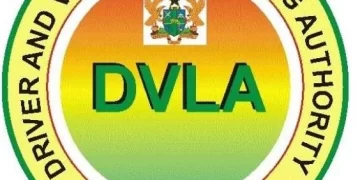The Ghana Chamber of Bulk Oil Distributors (CBOD) 2019 Ghana Petroleum Industry Report has noticed that nearby the oil charge income deficiency development, unexplained changes between the normal assessment receipts and genuine duty receipts developed by 11% in 2019 contrasted with 2018.
The report said underreported charges have seen a persistent development since 2016.
“This, combined with the development in unaccounted stocks in 2019, presents a significant reason for worry for government income and public safety,” it said.
The development of a particularly gigantic underground economy and the seep to the monetary handbag is a risk to Ghana’s quest for a country without help, noticed the report.
It further expressed that the Minister of Finance answered to parliament that a measure of GHS3,573.84mn was acknowledged in Energy Sector Levy Act (ESLA) receipts for 2019. This avoids Public Lighting Levy and National Electrification Scheme Levy which are charge segments of ESLA chargeable on force utilization and not oil based commodities.
“This position is at difference with processed ESLA receipts procured, in view of NPA affirmed 2019 OMC execution information less exceptions and descending varieties, which demonstrates that Ghs3,982.87mn ought to have been gathered.
“The detailed deficiency in government’s accounted for ESLA receipt was GHS409.03mn for 2019 in the wake of adapting to exclusions. The present circumstance is more terrible than the fluctuations recorded in 2016, 2017 and 2018, separately.
“Further examination of the difference shows that the under detailed expenses for the PSRL when contrasted with the normal receipts was 47% in 2019, while EDRL and Road Fund revealed a deficiency of 5%, separately.
“The perceptions in the different components of ESLA is of a significant concern and requires submitted and genuine arrangement intercessions to invert the tide.”
The report additionally demonstrated that over-convergence of leader power in the President has prompted a circumstance where heads of many state foundations, remembering those for the energy area, like the Ghana National Petroleum Corporation (GNPC), the Volta River Authority (VRA), and the Electricity Company of Ghana (ECG) are treated as a component of the political foundation, and dispatched with the out-going government, in some cases without sufficient opportunity to handover appropriately.
The report said the circumstance, almost certainly, accompanies the danger of losing institutional memory, and bargaining the proficiency and adequacy of such state establishments.
“Ghana, in 2008, decided on the ‘partition of capacities’ model of industry guideline, and in 2011, set up the Petroleum Commission.
“Nonetheless, the country’s institutional courses of action bear a ton of the signs of Argentina’s, regarding how the idea of the country’s political settlement will in general sabotage state foundations, remembering those for the energy area,” the report said.
It added that “It is reviewed that, when in 2007, Ghana made its milestone Jubilee disclosure, a petrol work area was set up at the administration, to lead the way toward building up the administration system for the area, with the area service assuming a compliant part. The outcome was that, as at the time the nation went into the 2009 political progress, very little memory and limit had been assembled or held in the area Ministry. Also, over-convergence of leader power in the President has prompted a circumstance where heads of many state foundations, remembering those for the energy area, like GNPC, VRA, ECG, and so on, are treated as a feature of the political foundation, and dispatched with the out-going government, in some cases without sufficient opportunity to handover appropriately. The circumstance, almost certainly, accompanies the danger of losing institutional memory, and trading off the productivity and viability of such state establishments.
“An investigation of the arrangement between the Africa Mining Vision (AMV) and the situation with Ghana’s administration structure for its characteristic assets, embraced by UNDP (2015), uncovered that, so particularly far as the structure of human and institutional limit is concerned, Ghana isn’t doing seriously.
“The UNDP Report gives proof of an intentional arrangement and methodology to create and advance an information driven serious oil economy, borne out of the wide cluster of foundations set up to seek after the country’s petrol area strategies.
“They list foundations, like the Ministry for Energy, Petroleum Commission, the Ghana Geological Survey Authority, National Development Planning Commission (NDPC), The Environmental Protection Agency (EPA), Forestry Commission (FC), Ghana Revenue Authority (GRA), and CSOs, as essential organizations ordered or situated to attempt to guarantee that Ghana stays an information stronghold in the oil economy.
“The Report, in any case, brings up that, institutional shortcomings, covers and misalignment are overflowing in Ghana’s petrol area, and these require critical thoughtfulness regarding keep the country on target to accomplishing its strategy objectives for the sector.”
SOURCE: ATLFMNEWSONLINE



























